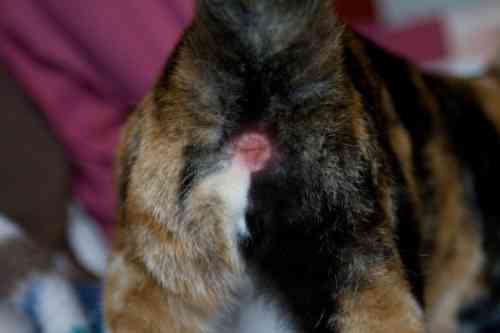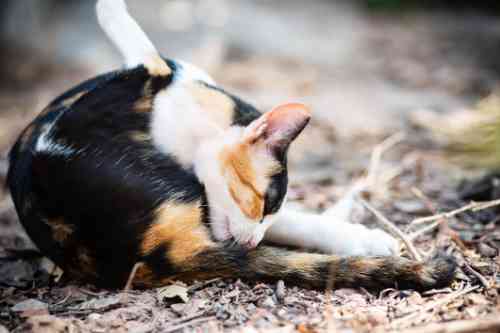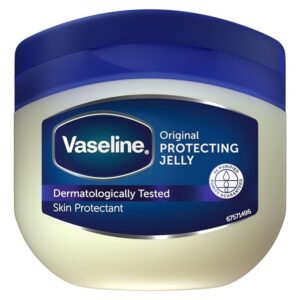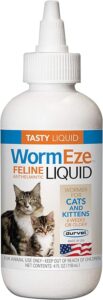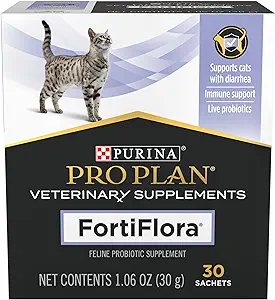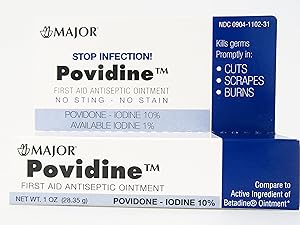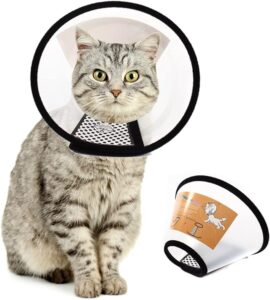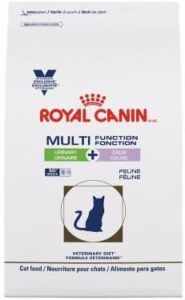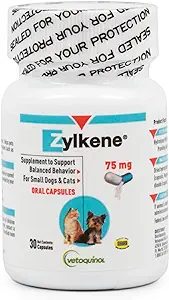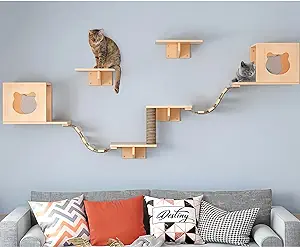Your cat has an inflamed anus
How do you solve this as quickly as possible?
Do you think that your cat has an inflamed anus? How super annoying. He will undoubtedly be quite bothered by it. But fortunately it is not a life-threatening problem. That makes a difference. In this article we explain what can be the cause of an inflamed anus in your cat. We will of course explain to you what symptoms you may notice and what you can do yourself to treat your cat’s inflamed anus. Hopefully your cat will soon be back to his old self. Without pain in his anus.
What is an inflamed anus in your cat?
Of course, everyone knows that the anus is the very last part of the intestines. It contains the muscle that ensures that your cat can hold his stool for a while until he has found a place where it is convenient to relieve himself. An inflamed anus in your cat makes defecating very painful for your cat. But even when he is not defecating, your cat has problems with his anus. This results in excessive licking and sliding on the floor. We also call this “scooting”.
The anus is inflamed because damage has somehow occurred to the tissue of the anus. Your cat’s body will try to clean up and repair this damage. But it does that by triggering an inflammatory response. We explain the causes that can cause damage to the anus below in this article.
What causes an inflamed anus in your cat?
There are several possible causes that cause your cat’s anus to become inflamed. We explain them one by one below.
Inflamed anal glands
In most cases, your cat has an inflamed anus due to its anal glands. The anal glands are two glands that your cat has right next to his anus. Every time your cat strains to get rid of his feces, the anal glands release some of the glandular contents with the feces. Every cat has a specific anal gland odor. It is therefore clear to cats that a certain poop belongs to a certain cat. This is how they demarcate their territory, among other things.
However, these anal glands sometimes cannot be emptied properly for one reason or another. They then fill more and more. At a certain point they are so full that the wall of the anal gland starts to tear. At this time, an inflammation occurs in your cat’s anal gland. And since they are very close to your cat’s anus, the anus itself often contributes to the inflammation. We have a separate page about inflamed anal glands in your cat. Here you can read in more detail what the cause could be and how to solve it.
Diarrhea
If cats have diarrhea, it is usually the case that they also have to defecate more often. The anus is not completely made for this. Because feces comes out more often through the anus and that feces are also quite wet, damage can occur to the mucous membranes or skin of your cat’s anus. And if tissue is damaged, your body tries to clean up this damage through an inflammatory response. In other words, your cat will have an inflamed anus as a result of the diarrhea.
Unfortunately, damage can also easily become infected with bacteria. And they occur in large quantities in the diarrhea that keeps coming along. Not really conducive to the inflamed anus.
Intestinal worms
Worms can also cause an inflamed anus in your cat. Tapeworms in particular are often the culprit. Worms can cause mild diarrhea and then the above story applies. But they can also cause your cat’s anus to itch. Then your cat will start licking his anus excessively or rubbing his buttocks on the ground. The result in that case is that his anus might be damaged. This damage can in turn cause an inflamed anus in your cat.
Injury
If for some reason an injury has occurred to your cat’s anus, this injury can easily become infected with fecal bacteria. The result is also an inflamed anus in your cat.
Stress
Stress can cause an inflamed anus in your cat in several ways. On the one hand, stress is a very important cause of chronic diarrhea. And as you could read above, diarrhea can cause an inflamed anus. But stress also causes poor quality of the skin and therefore also of the anus. The recovery from inflammation is significantly worse in cats that are stressed. So on the one hand, stress can cause diarrhea, which in turn can cause an inflamed anus. But on the other hand, your cat’s body cannot properly repair this inflammation of his anus, no matter how mild the inflammation is. In that case, the inflammation of your cat’s anus can become increasingly worse.
What symptoms can you see if your cat has an inflamed anus?
If a cat has an inflamed anus, he will experience irritation in his anal region. You may notice the following symptoms in your cat if he has an inflamed anus:
- Excessive licking or biting of his anus.
- A red looking anus
- A swollen anus region
- Having difficulty or pain with bowel movements
- Sliding buttocks across the floor. We also call this scooting.
- Try to sit in a different way than he used to.
- An unpleasant odor if there is an infection or inflamed anal glands
- Blood or pus from the anus
- Different behavior than you are used to from him, such as being more irritated, reduced appetite, seeking less contact with you.
- Painful reaction when you pet him near his anus or tail.
How do you diagnose if your cat has an inflamed anus?
This can sometimes be a bit difficult because the various causes are also interrelated. First of all, it is important to distinguish between whether your cat has diarrhea or not and whether he has inflamed anal glands or not. You can often recognize an injury yourself if you take a good look at your cat’s inflamed anus.
If you see inflamed anal glands, you can find the treatment on this page about inflamed anal glands.
In case of diarrhea you can read more about it on this page.
Treatment if your cat has an inflamed anus
Inflamed anal glands
If your cat has problems with his anal glands, it is important that these anal glands are emptied. You can read how to do this yourself on the page about inflamed anal glands. It can be a bit painful for your cat if it is so bad that it has caused your cat to have an inflamed anus. In addition, it is also just a very dirty job. So if you have any doubts about this, it is also possible to have this done by your vet. Your vet may also give your cat a course of antibiotics and a painkiller at the same time.
Diarrhea
If diarrhea is the cause of your cat’s inflamed anus, there is a difference between long-term diarrhea or acute diarrhea. In acute diarrhea, the diarrhea is often quite severe, but has only just started. In that case, it is usually sufficient to put on some Vaseline on your cat’s anus to prevent watery diarrhea from further irritating the anus. The fluid from the diarrhea cannot reach the anus skin due to the greasy Vaseline. It is best to apply a little Vaseline to the anus at least 3 times a day. But more often is also allowed.
Is there diarrhea that does not go away on its own after a few weeks? Then it is wise to give your cat a anti-parasitic agent. You use Wormeze for this. This medicine is a dewormer for normal worms. After that, most parasites are a thing of the past. In the meantime, you can of course continue to lubricate the anus with Vaseline to prevent worsening of the inflammation on its anus.
If the deworming does not provide a solution within 7 days, it is wise to give your cat probiotics. After all, it is possible that his intestinal flora has been completely disturbed by the original reason for the diarrhea. With probiotics you help restore your cat’s intestinal flora.
Wound infections
Do you see pus actually coming out of your cat’s anus? And the inflammation of its anus (actually infection) is mainly external to the anus? Then you can use iodine ointment to treat the infection. In that case, you should lubricate the anus with Povidine ointment 3 times a day and wear a cervical collar in the meantime. After all, there is a good chance that he will try to lick it off and Povidine can give your cat diarrhea. So that’s not an ideal combination in this case.
Stress
It is of course important to prevent stress in your cat. After all, it is very bad for his entire body. It is important to try to find out what is causing your cat stress. For example, is he bothered by the noise of the children? A neighbor’s cat? Or maybe even your own other cat? However, it is always quite difficult to determine the cause. Solving the cause is always better than suppressing the symptoms. But if you really don’t know what the cause of his stress is, we have alternatives for you.
Since in this case stress is the cause of diarrhea and an inflamed anus in your cat, it is wise to give your cat a food that contains substances that increase the serotonin level in his brain, making him less likely to be upset by certain causes. In addition, the food is of high quality and easily digestible, which is good for the diarrhea itself. And the fish oil contained in it provides better resistance in the tissues, which means that your cat’s anus will also heal more easily.
But if for some reason you want to keep his original food, you can also give your cat Zylkène. It contains the same kind of natural ingrediënts that rises the Serotonin concentration in the brain of your cat. And therfore making your cat more relaxed.
When should you visit a vet if your cat has an inflamed anus?
If your cat has a lot of pain in its inflamed anus and is clearly having difficulty defecating, it is necessary that you take your cat to your vet. He or she can properly examine your cat’s anus and determine the cause. Your vet may also prescribe stronger medication so that your cat will get rid of his problem most quickly. Because pain in your anus is really very annoying to have.
How do you prevent an inflamed anus in your cat?
Unfortunately, you can never really prevent an inflamed anus in your cat for 100%. But by giving your cat good quality food you ensure a strong immune system in his body and therefore also in his anus. This also makes his anal glands healthier. By also deworming your cat every 3 months, you prevent it from getting severe itching in its anus due to worms. You can also reduce stress by giving your cat plenty of rest and spaces where he feels safe. For example, many cats like to lie on high surfaces so that they can keep a close eye on all “dangerous things” from there.
But unfortunately, an inflamed anus can sometimes occur in your cat even if you have done everything as best as possible. In that case, we hope that you will find enough information in this article to quickly get the problem under control. Good luck!

